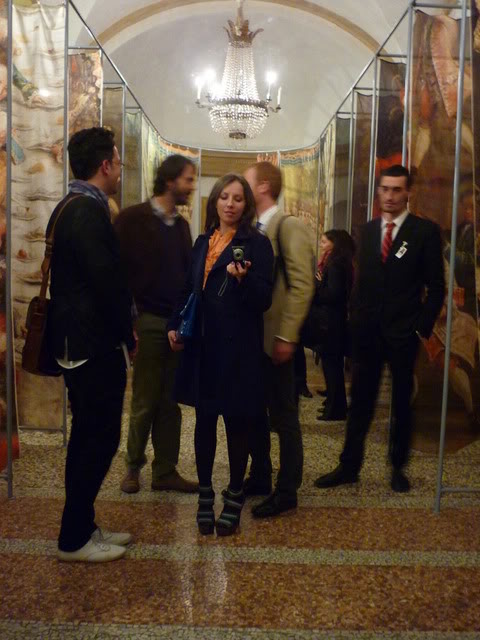Rereading J. Peter Euben's Platonic Noise. It's a great book but probably not spectacularly useful unless you're interested in academic discourse about the interaction between ancient and modern texts. Conveniently enough, I am. I remember picking it up in the shop, reading the preface, and feeling like I'd found a kindred spirit. Euben operates very much along the lines of Stanley Fish in that the individual reader determines the significance, the utility of each text, but Euben's application is even more exciting for me because he's effectively combining this resistance to "utility" and methodological applications with classical reception (still a sort of dirty word in my field).
As for academia's insistence that scholarly work (especially in the Humanities) must be "useful", Euben has this to say:
The demand that our work be practical usually means that it should be useful. The problem is that those who judge what is useful are those who hold cultural, political, economic, and academic power. The call for practicality can be theoretically radical, but it is more often a counsel of docility and adaptation to professional norms.
More than this, if it is true that the conditions of our lives are never transparent to us, then the demand for practicality, like the demand for relevance, is a recommendation of ignorance. Oedipus (in OedipusTyrannos) is a very practical man. As such, he translated everything he encountered into a problem that he could solve. But he was, as Jonathan Lear suggests, so impatient for an answer that he never fully grasped the problem. And it was, as we know, one hell of a problem.
It's just genius, really. This obsession with utility, with relevance and practical application is so ridiculous in humanities research. Not that a methodological framework isn't important, but how can we define what's useful in any real sense when utility today might mean something completely different tomorrow. If however, by utility, you mean to question not whether the research provides some quantifiable addition to the body of knowledge (another favourite quote of Professors in the Humanities), but whether the research is useful in that it opens up new paths worth following instead of leading simply to dead ends. So don't ask if the (somewhat absurd) question about whether television comedies can play a role in contemporary America analogous to the role Aristophanic comedy played in democratic Athens is "practical", but instead ask only whether it leads anywhere interesting. Then go and follow.
Like Nietzsche insists of classical texts, their "usefulness" lies in their capacity to surprise and provoke. Knowledge must exist for life, not just for practicality - don't be fooled into thinking these are the same thing. As Euben so eloquently expresses, "the search for knowledge must be driven by passion and need, by a hunger to understand, a sense of absence, and a profound engagement with the fact of mortality." If, as a scholar of the humanities, you're always being asked to justify the utility or practicality of knowledge, how can you allow for the fact that sometimes knowledge is neither useful nor practical. Indeed, it may be anything but useful: surprising, provocative, beautiful, enlightening, but in no way practical. It all veers dangerously close to the commodification of knowledge and maybe we can't avoid such a thing in the corporate world, but thanks to people like Euben and Fish, hopefully it will never come to such a thing in the halls of academia.
Happy Easter. Now go read some Plato.




No comments:
Post a Comment